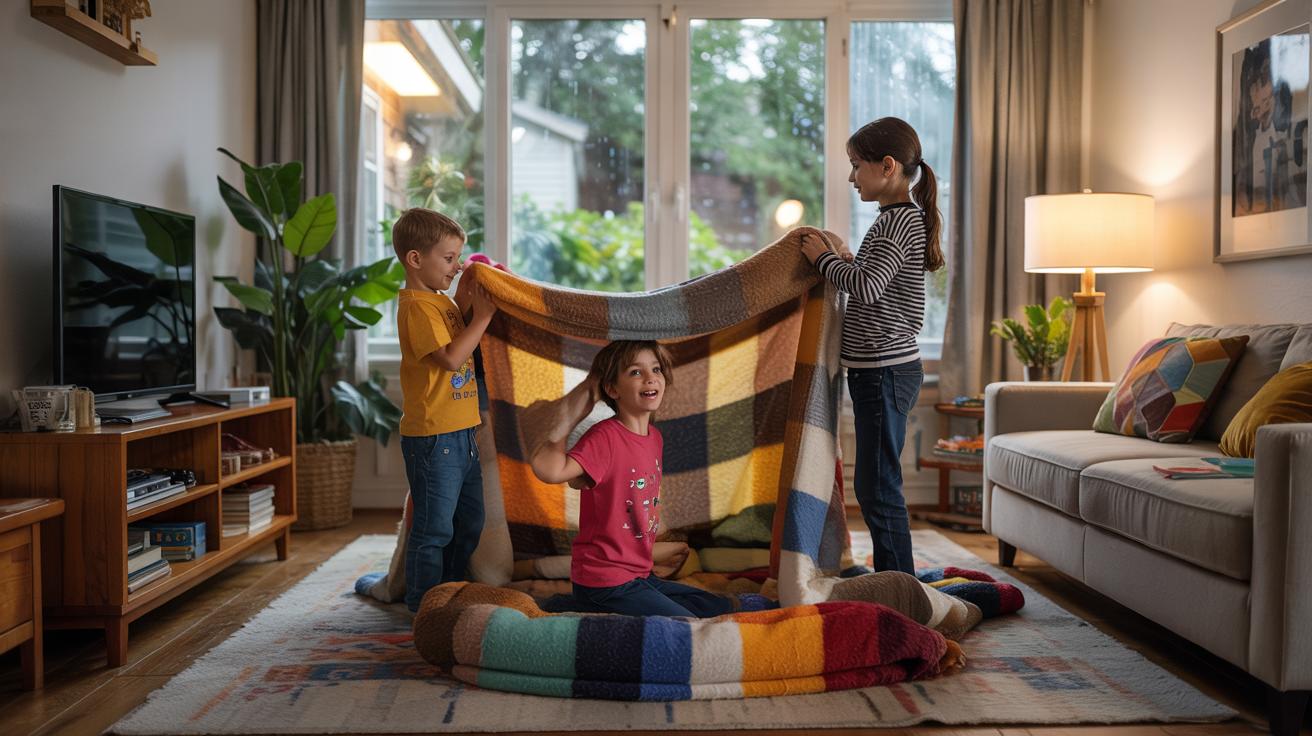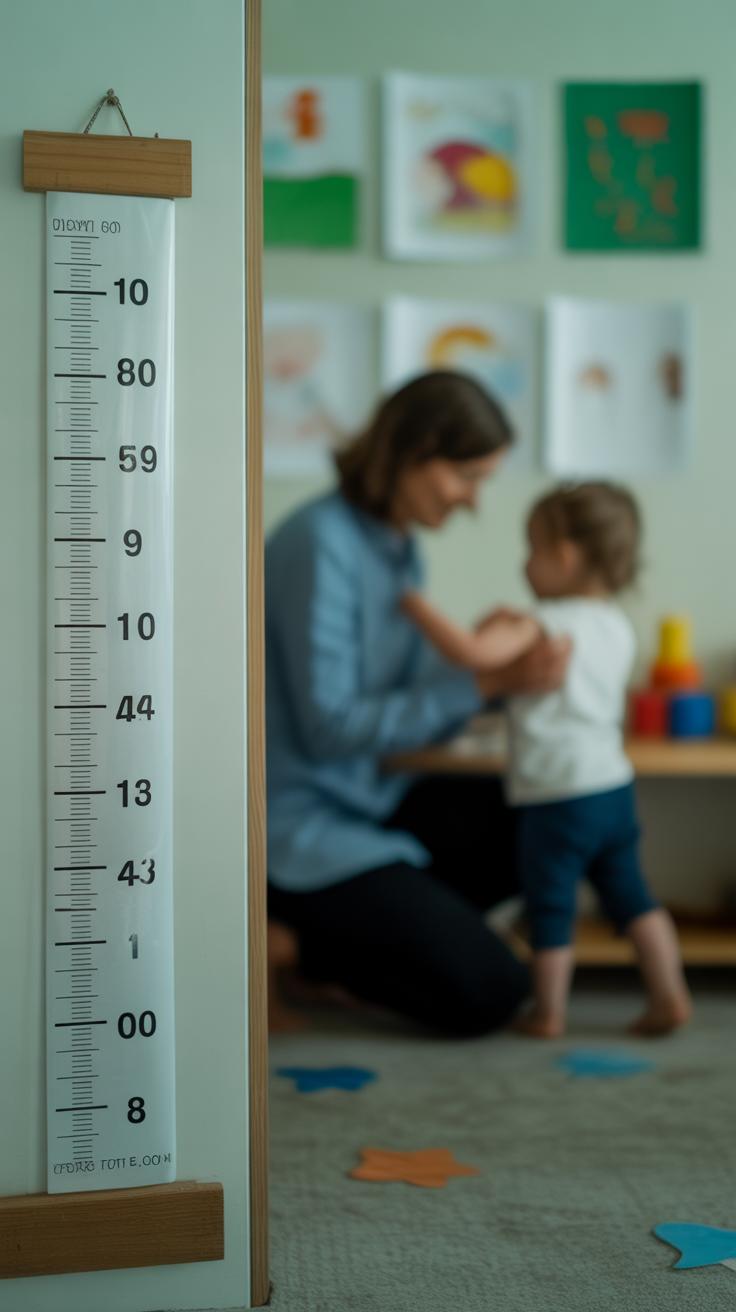Introduction
Parenting today involves many challenges along with unique opportunities. You want to raise confident, happy children while managing work and family life. Smart parenting means using thoughtful strategies based on understanding your child and environment. It requires balancing care, discipline, and freedom to help your child grow into a responsible adult. This article guides modern families on essential parenting techniques and ideas that make you more effective and present. You will find insights about communication, discipline, emotional support, and creating a positive home atmosphere.
Families come in many shapes and sizes. The rules and approaches that work for one family may differ for another. Still, all parents benefit from practical tips that strengthen bonds and nurture development. This article addresses common parenting concerns with clear, actionable tips that fit busy schedules. You will learn about styles of parenting, how your attitudes affect your child’s behavior, and how to adapt as your children grow. Are you ready to improve your family life and support your child’s success? These guidelines will help you on your parenting journey.
Understanding Parenting Styles
Parenting styles shape how children learn, behave, and grow. Four main styles exist: authoritative, authoritarian, permissive, and uninvolved.
The authoritative style balances rules with warmth. Parents set clear limits but listen and explain. This approach helps kids feel secure and confident.
Authoritarian parents enforce strict rules with little warmth or feedback. Kids may obey but can feel anxious or withdrawn.
Permissive parents are warm but set few rules. Children often struggle with self-control and may test boundaries.
Uninvolved parents are detached and provide little guidance. Children might feel neglected or struggle emotionally.
The authoritative style fits modern families best. It supports healthy development while adapting to today’s challenges.
Recognizing Your Parenting Style
Consider how you respond when your child misbehaves. Do you calmly explain consequences or react with strict commands?
If you find yourself giving everything your child wants, you may lean toward permissive parenting.
Ignoring your child’s needs or moods shows signs of uninvolved parenting.
Most parents combine styles but aim for balance. Try adding warmth if you are too strict or set clearer limits if you are too permissive.
Small changes, like listening more or maintaining consistent rules, move you toward a positive style.
Why Parenting Style Matters
Your parenting style shapes how your child feels and acts. Authoritative parenting encourages independence and confidence.
Strict authoritarian parenting may lead to obedience but also low self-esteem or fear.
Permissive parents may raise children who struggle with responsibility and self-discipline.
Uninvolved parenting often harms emotional health and social skills.
Children raised with warmth and clear boundaries are more likely to succeed in school and form healthy relationships.
Ask yourself: how do your parenting habits support your child’s growth?
Building Strong Communication
Strong communication creates trust and understanding between you and your child. It shapes how your child learns to express feelings and solve problems. Active listening helps you know what your child really means, beyond just words. Giving clear instructions lowers confusion and frustration. Expressing feelings constructively shows your child how to handle emotions without anger or blame. These skills work together to build a safe space where your child feels valued and heard. How often do you pause to listen before responding? When you speak, do your words invite cooperation or shut down conversation? Practicing these communication strategies daily can improve your relationship and help your child develop confidence and respect for others.
Listening to Your Child
Face your child fully when they talk. Eye contact shows you are present. Ask open-ended questions like “How did that make you feel?” instead of yes-or-no questions. This encourages your child to share more. Validate their feelings by saying things like, “I see why you’re upset.” Validation does not mean agreeing but shows you respect their emotions. When you listen actively, your child feels supported and understood. This strengthens your connection. It turns small talks into deeper conversations. How might your child’s behavior change if they felt truly heard every day?
Speaking Effectively
Give clear, simple directions. Use specific words such as “Please put your toys in the box” instead of “Clean up.” Your tone matters as much as your words. Speak calmly and respectfully to avoid triggering resistance. Yelling might get quick compliance, but it harms trust. Choose words that encourage, not punish. For example, say “I need you to finish your homework before playing” rather than “Stop wasting time.” When you model respectful speech, your child learns to communicate the same way. What could happen if your child heard respectful requests instead of commands every day?
Setting Boundaries and Discipline
Setting clear boundaries helps your child feel safe while learning how to be responsible. Firm rules should respect their growing independence but also provide structure. For example, you might set a rule about screen time that allows flexibility on weekends but requires limits on school nights. Rules like this show respect for your child’s need for choice while keeping healthy limits in place.
Discipline differs from punishment. Punishment focuses on making a child suffer for misbehavior, which can harm trust. Discipline aims to teach and guide. Positive discipline techniques encourage learning from actions rather than fear of penalties. How can you correct behavior without anger or frustration? Staying calm and explaining why a rule exists helps your child understand the purpose behind limits.
Positive discipline focuses on problem-solving and respect. It builds skills for making better choices on their own. This approach improves relationships and supports your child’s growth into a responsible adult.
Creating Consistent Rules
Clear, consistent rules make expectations obvious for everyone in the family. When rules change or are vague, children get confused and test limits. Consistency shows your child that you mean what you say.
Invite your family to discuss rules. When children understand the reasons behind boundaries, they are more likely to follow them. Reasonable rules might include homework before play, bedtime by a certain hour, or asking politely for help.
Keep rules age-appropriate and simple. For example, telling a teenager to charge their phone every night versus telling a toddler not to run indoors. Being clear helps avoid unnecessary conflicts and builds trust.
Using Positive Discipline
Every misstep offers a chance for learning. Instead of harsh punishments, apply consequences that relate to the behavior. For instance, if your child breaks a toy on purpose, they might need to save allowance to replace it. This natural result connects actions with outcomes.
Rewarding positive behaviors encourages good choices. Praise or small treats for following rules make children feel valued and motivated. During corrections, keep your voice steady and use statements like “I need you to stop now” instead of yelling.
Calm, fair corrections help children listen and rethink their actions. Can you maintain patience when your child tests a boundary? This steadiness teaches respect more effectively than shouting. Positive discipline builds respect both ways and helps your child take responsibility for their actions.
Encouraging Emotional Intelligence
Helping your child recognize and manage emotions builds a strong foundation for healthy relationships. When children learn to identify their feelings, they gain control over their reactions. You can support this process by responding calmly to emotional moments. Acknowledge what your child is feeling instead of dismissing or ignoring their emotions. This shows you understand and respect their experience.
Empathy plays a key role in helping kids handle feelings. When you listen without judgment and validate their emotions, children feel safe opening up. Validation does not mean agreeing with all behavior but recognizing the feelings behind it. This support helps children calm down and think clearly. You can ask questions like, “What made you feel that way?” or “How can we work through this together?” to guide them toward healthy coping skills.
Encouraging emotional intelligence strengthens your child’s ability to manage stress and build positive friendships. What emotions does your child struggle to express? How do you respond when they do?
Teaching Emotional Awareness
You can help your child name emotions by talking about feelings every day. Use simple words like happy, sad, angry, or worried to describe what they might be experiencing. When your child shows a strong emotion, encourage them to say what it is. For example, “I see you are upset. Can you tell me why?” invites expression.
Activities like journaling give children a private space to understand their emotions. You might set aside time daily for writing or drawing about their day and feelings. Another option is regular family check-ins where everyone shares how they feel. These habits teach your child that emotions are natural and safe to express.
What ways have you tried to help your child recognize and share their feelings? Could daily discussions or creative outlets bring more clarity and calm to your household?
Modeling Empathy
The way you respond to others teaches your child how to treat people. Showing empathy means you listen carefully and offer support when someone is upset. When your child sees you practice empathy, they learn to do the same with their friends and family.
You might say, “I understand you’re frustrated,” or help them imagine how others feel during conflicts. This models respectful communication. Kids who experience empathy often feel more confident and develop stronger social skills. They also become better at solving problems without anger.
Think about how your reactions impact your child’s behavior. Are you showing empathy during tough moments? How can you make your support clearer to build their emotional strength?
Balancing Technology and Family Time
Technology plays a big role in everyday life. If not managed well, screen time can lead to arguments and less family interaction. You can avoid this by setting clear rules about using devices. Discuss with your children when and how much screen use is acceptable. This helps prevent conflicts over unexpected limits.
Creating technology-free zones or times encourages meaningful family moments. Try designating daily periods for activities like meals, board games, or walks without phones or tablets. Such moments help everyone focus on each other, build trust, and improve communication.
Ask yourself: How often does your family connect without screens? What changes can you make this week to bring more focus to family time? Small changes can make a big difference in nurturing healthy relationships and supporting your child’s growth.
Establishing Screen Time Limits
Children need guidance on when and how to use technology safely. Age matters when setting screen time. For example, toddlers benefit from very limited exposure, often less than one hour a day, focusing on educational content. Older kids might handle up to two hours but need supervision.
Set clear daily or weekly limits with your child’s input. Use apps or devices’ built-in controls to block inappropriate content. Discuss these rules calmly and explain why they protect your child’s well-being.
Consider family meetings to review and adjust limits together. How can you balance your child’s interests and healthy habits? This shared planning encourages respect for screen rules and reduces power struggles.
Fostering Quality Family Interaction
Replace screen time with activities that bring your family closer. Try games like charades, storytelling, or cooking together. Even simple activities like sharing a book or gardening can spark conversations and teamwork.
These interactions teach kids social skills and show them you value time spent together. When you put down devices, everyone feels heard and important.
Think about your family’s favorite pastimes that don’t involve screens. How can you make these a regular part of your routine? Creating these habits strengthens communication and builds lasting bonds in busy modern lives.
Adapting to Your Childs Developmental Stages
Caring for Infants and Toddlers
Your approach must center on creating a sense of safety and trust. Infants need consistent responses to their cries and signals. Holding, eye contact, and gentle speech strengthen your bond.
Early learning happens through play and exploration. Simple games like peek-a-boo boost brain growth. You can encourage curiosity by naming objects and describing surroundings.
For toddlers, establishing routines helps them understand boundaries. Simple choices empower them to feel control. When a toddler resists, try distraction or redirecting energy rather than saying “no” repeatedly.
Responding with patience during tantrums teaches emotion regulation. At this stage, your calm presence matters more than correcting behavior.
Guiding School-Age Children and Teens
Supporting older children focuses on building independence and confidence. As your child takes on schoolwork, your involvement can shift from direct help to guidance. Asking, “What do you think about this?” invites problem-solving.
School challenges may cause frustration or low self-esteem. Help your child break tasks into steps and celebrate small wins to foster resilience.
Social pressures often increase during adolescence. Encourage open conversations about friendships, peer pressure, and feelings. Listening without immediate judgment creates trust.
Setting clear but flexible rules around responsibilities and screen time supports self-discipline. Your role changes from manager to coach, helping your teen navigate complex choices.
Are you ready to adjust your parenting style to meet these changes? Adapting thoughtfully helps your child grow into a well-rounded adult.
Supporting Education and Learning
Parents shape how children view learning and school. Your interest in their studies encourages them to do well. You can motivate your child by setting clear expectations and celebrating small achievements. Asking questions like “What did you enjoy in school today?” can show that their efforts matter.
Building a strong connection with your child’s school helps you support their progress. Attend parent-teacher meetings to learn about their strengths and challenges. Share any concerns early to find solutions together. Working with teachers creates a team around your child’s success.
Creating a Learning-friendly Environment
Set up a quiet spot at home dedicated to studying. This space should be free from distractions like TV or loud noises. Keep school supplies handy and organized.
Encourage curiosity by offering books and resources that match your child’s interests. Simple activities such as exploring nature or visiting a museum can spark questions and creativity. Do you notice what your child enjoys learning most? Use those interests to guide what you provide at home.
Working with Teachers and Schools
Communicate with your child’s teachers regularly. Ask how your child is doing and what you can do to help at home. When problems arise, approach the school calmly and focus on finding practical solutions together.
Volunteer for school events if you can. This shows your child and their teachers you value education. Hearing about school success from both home and teachers strengthens your child’s confidence and commitment to learning.
Taking Care of Yourself as a Parent
When you focus on your own well-being, you become a stronger parent. Managing the demands of family life without caring for yourself can cause frustration and fatigue. Stress can build quietly but affect your reactions, patience, and the overall mood at home.
How do you know if stress is taking over? Signs might include feeling overwhelmed, irritability, difficulty sleeping, or constant fatigue. When these feelings continue, they can disturb family harmony and make your parenting feel harder.
Simple habits can help reduce stress and bring balance. Set aside time each day for activities you enjoy, like reading, walking, or hobbies. Don’t hesitate to ask for help from family or friends to get a break. Even short relaxation exercises or deep breathing can calm your mind.
Keeping some space for yourself outside parenting duties supports your mental health and keeps your family relationships healthy. What small change can you make today to care for yourself better?
Recognizing Parental Stress
Stress in parents often grows unnoticed. You might feel anxious, tired, or impatient without clear reasons. Small frustrations might seem bigger than before.
Burnout makes it harder to connect with your children and partner. It lowers your energy and may cause mood swings. Sometimes, you might withdraw, avoiding family time just to catch a breath.
Watching for these signs helps you act early. Consider how often you feel worn out or distracted. If stress controls your days, your family dynamics could suffer.
Are you listening to your own needs as closely as you do your family’s?
Practicing Self-Care Strategies
Carving out time for yourself strengthens your ability to parent with patience and love. Even 10 minutes can make a difference.
Try simple relaxation tricks like deep breathing, stretching, or meditation. Connect with others by joining a parents’ group or chatting with friends. Sharing experiences lowers stress.
Sustaining hobbies sparks joy and refreshes your mind. Maybe paint, write, or garden between family duties. These moments remind you who you are beyond parenting roles.
What activity have you stopped that once made you feel alive? Consider bringing it back as part of your self-care routine. Your family will benefit when you feel balanced and strong.
Conclusions
Smart parenting relies on consistent effort and open attention to your child’s needs. It calls for patience and learning from experience. Applying a positive parenting style that mixes clear expectations with warmth can boost your child’s growth and resilience. Remember to stay involved in your child’s life and guide them gently through challenges. Your responsiveness shapes their emotional health and confidence.
Modern parenting includes adapting to changing times and pressures. Technology, social influences, and evolving family roles require flexible approaches. By using the tips in this article, you build a foundation for strong relationships and lifelong learning. Reflect on your parenting choices regularly and adjust as necessary. This empowers your family to thrive together through all stages of growth.
























